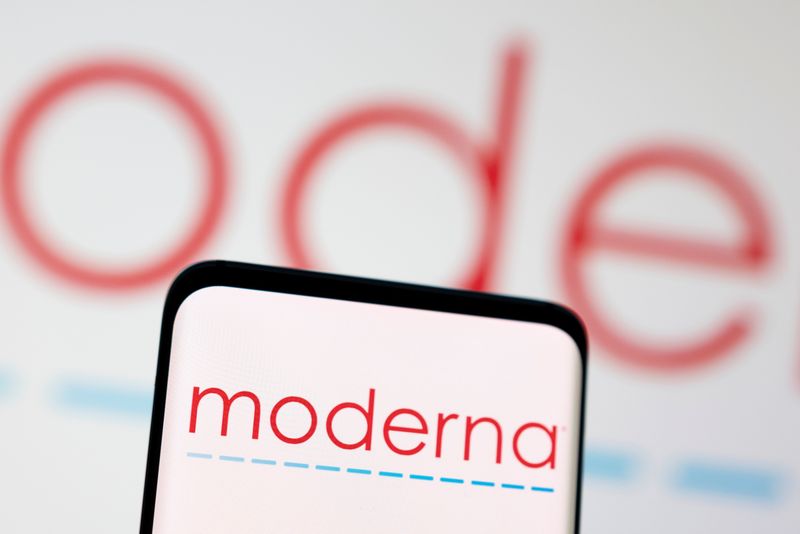(Reuters) - Moderna (NASDAQ:MRNA) fell as much as 7% on Friday after Wall Street analysts raised concerns over faster declines in the efficacy of its experimental respiratory syncytial virus (RSV) vaccine when compared with rival shots from GSK and Pfizer (NYSE:PFE).
Data posted on Thursday ahead of an RSV conference next week showed an efficacy of about 63% after 8.6 months in preventing RSV-related respiratory disease, down from 84% at 3.3 months.
Moderna's shares fell to $89 in morning trading, after closing down 5.7% on Thursday.
Brokerages TD Cowen and UBS said the data raised questions that the vaccine could show a steeper decline at another long term follow-up of 14 months, giving competitors an edge.
The efficacy for GSK's vaccine, called Arexvy, fell to 77% at 14 months from 83%, while Pfizer's slipped to 49% in 17 months from 67%, according to TD Cowen.
Moderna cautioned against comparing its vaccine, saying the trials for the rival shots used different case definitions for RSV-disease.
"In the absence of head-to-head clinical trials, comparative conclusions regarding the safety and efficacy of mRNA-1345 relative to other RSV vaccines cannot be made," Moderna said.
Despite the differences, TD Cowen analyst Tyler Van Buren said in a note it raises concerns over the competitive profile of Moderna's shot if confirmed with more data.
GSK and Pfizer launched their shots last year.

While no final decision has been made for how often the vaccines should be given, GSK and Pfizer are both looking at the possibility of at least two years of efficacy.
The RSV vaccine is one of the key products Moderna is banking on to revive sales as demand declines sharply for COVID-19 shots.